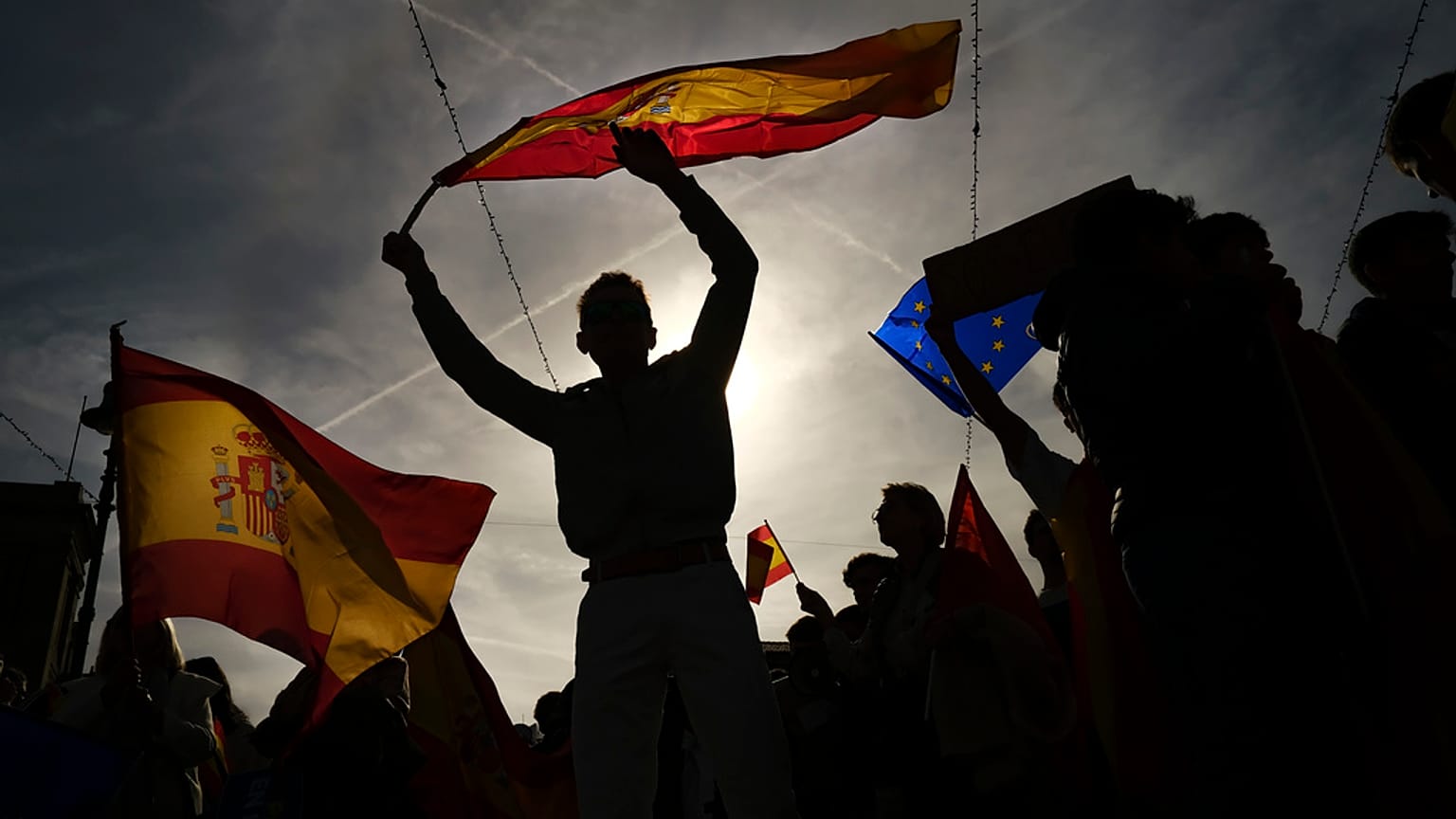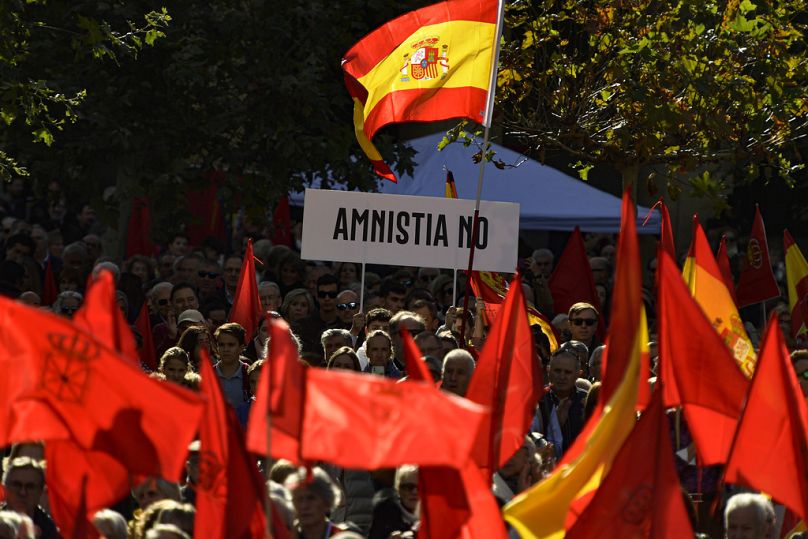The law could have paved the way for the return of fugitive ex-Catalan president Carles Puigdemont.
Catalan separatist lawmakers dealt Spain’s government a blow Tuesday by voting against an amnesty law that aimed to help hundreds of their supporters who were involved in Catalonia’s unsuccessful 2017 independence bid.
The bill was rejected by one of the two Catalan parties, the Junts (Together) who want to protect their leader Carles Puigdemont, a fugitive in Belgium, against all possible legal challenges if he returns to Spain. They argued that the proposed law did not go far enough.
"We will keep negotiating with a margin of 15 days more. There is no reason to approve an amnesty law with holes in it,” said Junts member Míriam Nogueras. She said the Socialists warned them that the proposed amendments “could mean that the amnesty law runs into trouble in Europe,” but she said they were prepared for that.
The conservative People's Party and the far-right Vox also voted against it, meaning the bill received 171 votes - five short of the majority it needed.
The rejection highlighted the government´s fragility even among its so-called allies. Socialist Prime Minister Pedro Sánchez agreed to the law in exchange for the parliamentary support of two small Catalan separatist parties - Esquerra Republicana and Junts per Catalunya- which enabled him to form a new minority leftist government late last year.
The bill, which is crucial to their support, could have paved the way for the return of Puigdemont who fled Spain for Belgium after leading the failed illegal secession bid in 2017, which brought the country to the brink.
Puigdemont and the Catalan independence issue are anathema to many Spaniards, and the amnesty bill has raised the ire of the conservative and far-right opposition parties, which represent about half the country's population. Many in the judiciary and police are also opposed, as are several leading figures in Sánchez's own party.
Opposition parties have staged at least seven major demonstrations against the law in recent months.
Why did the law falter?
The party of pro-independence leader Carles Puigdemont announced that it would vote against the amnesty law unless its proposed amendments ensure that all cases related to the secession bid are included and accepted.
The main stumbling block was the inclusion of terrorism cases in the amnesty law. Junts per Catalunya wants to protect Puigdemont and his involvement in the case investigating the activities of the pro-independence platform Tsunami Democràtic.
The judge of the Spanish Supreme Court in charge of the investigation wants to attribute terrorist crimes to two cases.
These are the events at Barcelona's El Prat airport on 14 October 2019, when a protesting crowd collapsed the airport and a French traveller died of cardiac arrest and two police officers were seriously injured in the clashes.
Puigdemont's party wants to change the wording of the law so that all terrorist crimes are amnestied.
What is next?
The bill must go back to a parliament commission to be drawn up again within two weeks. It is not known if the law could come into force, as it would have to go to the Senate, where the fiercely conservative leading opposition party, the Popular Party, has an absolute majority. The party has vowed to do everything in its power to block the bill in the Senate and challenge it in court.
After denying during his election campaign that the Socialists would grant the amnesty, Sánchez now says that the amnesty will be positive for Spain because it will further calm the waters in Catalonia.
Sánchez's previous government pardoned several imprisoned leaders of the Catalan independence movement.

















